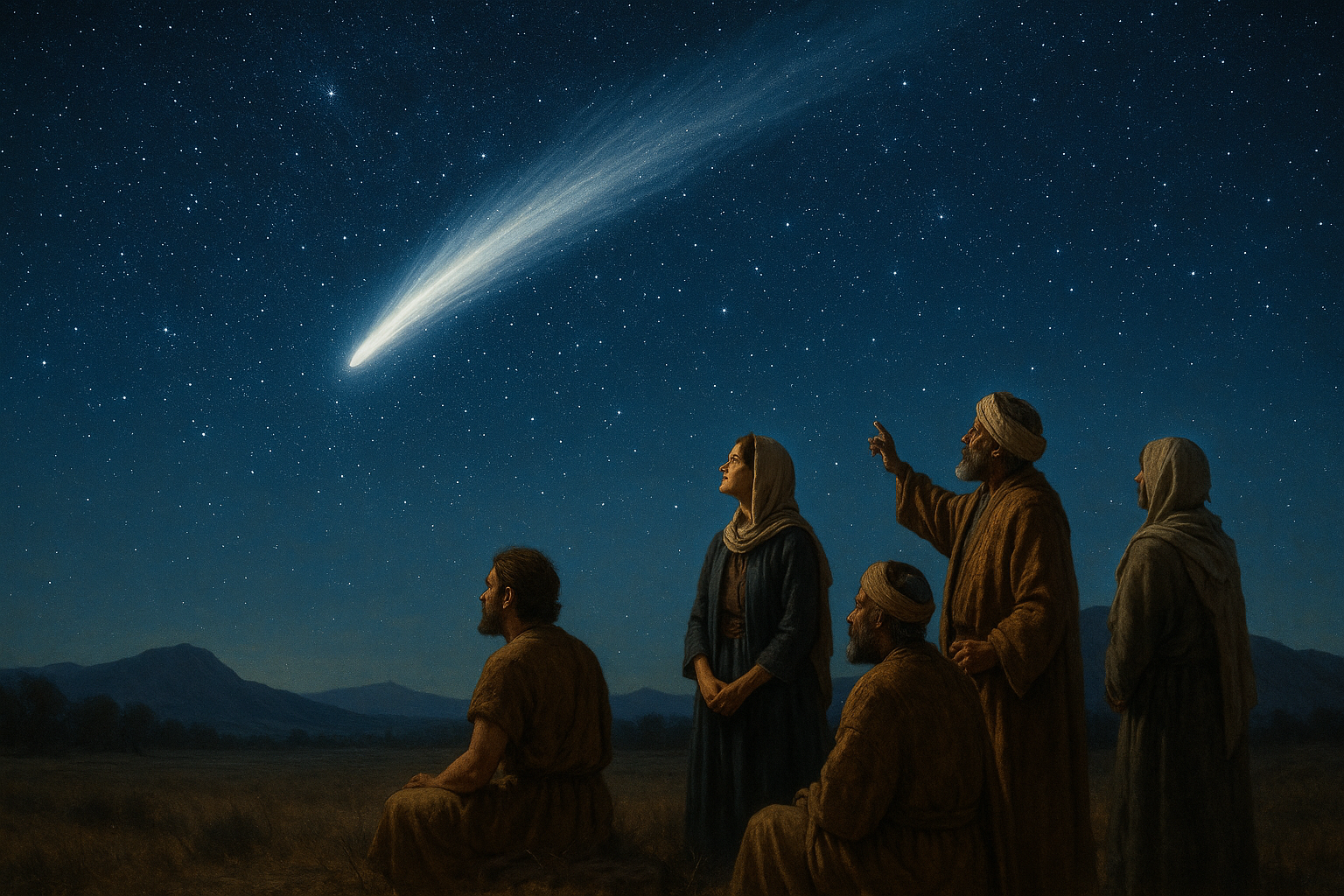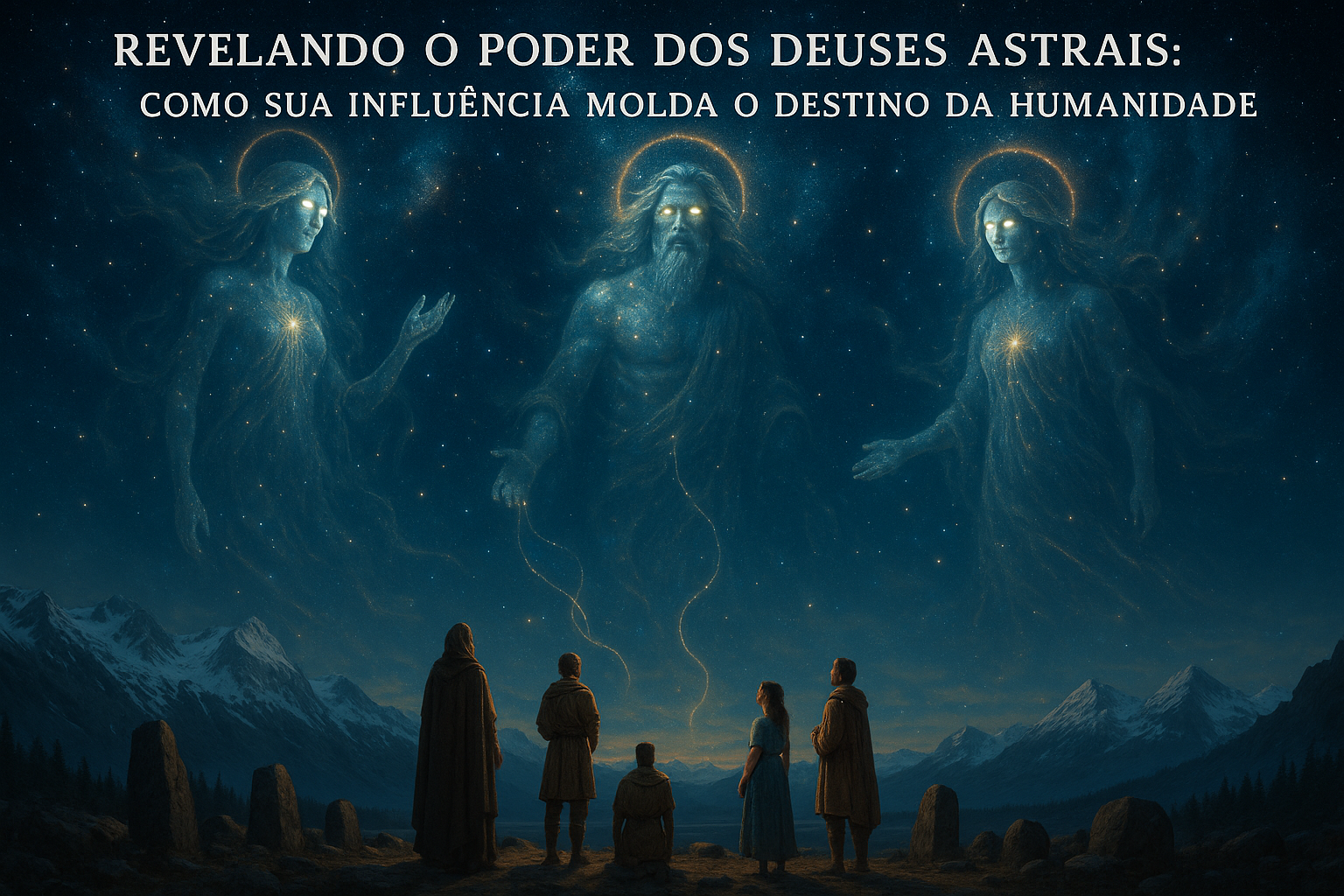In a world where politics often feels grounded in the mundane—dominated by legislative processes, policy debates, and the perpetual chase for power—there lies a fascinating and often overlooked dimension that connects earthly governance to the vast expanses of the cosmos. 🌌 Welcome to the intriguing intersection of political power and celestial symbolism, where the movements of stars, planets, and other celestial bodies are believed to influence, guide, or even dictate the course of human leadership and decision-making. This isn’t a mere dalliance with astrology or an indulgence in superstition; rather, it’s an exploration of how cosmic forces have been perceived to align with the destinies of those who wield power, shaping their paths and decisions in profound ways.
The connection between the cosmos and political power is not a novel idea. Ancient civilizations, from the Egyptians to the Mayans, and from the Greeks to the Chinese, have long regarded the heavens as a celestial roadmap—a divine script—informing leaders about their roles and responsibilities. These cultures saw celestial events as omens or endorsements, guiding the hand of rulers and influencing the fate of entire nations. In this article, we’ll delve into the historical foundations of this belief, tracing how the celestial symbolism has been interwoven with governance across different cultures and epochs. By understanding the historical context, we can appreciate how these ancient perspectives continue to resonate in modern political thought and practice.
But why does this cosmic connection endure in an age dominated by science and rationalism? 🤔 The answer lies in the enduring human quest for meaning and guidance amidst the chaos of political life. As we navigate through the complexities of contemporary governance, the idea that there might be a higher purpose or order—reflected in the celestial realm—offers a sense of comfort and clarity. This article will explore how modern political leaders, consciously or unconsciously, still tap into this cosmic influence. We’ll examine case studies of notable leaders who have embraced celestial symbolism, whether through personal belief systems or as a strategic tool to galvanize public support and craft a compelling narrative.
Furthermore, we’ll investigate the psychological and sociological implications of this cosmic-political connection. How does the perception of a higher cosmic order influence political decision-making and leadership styles? How do leaders utilize celestial symbolism to legitimize their authority or inspire their followers? 🌟 Through these questions, we’ll uncover the nuanced ways in which the cosmos continues to play a symbolic role in shaping political landscapes. This exploration will also include an analysis of how celestial symbolism intersects with other cultural and spiritual beliefs, creating a rich tapestry of influence that extends beyond mere political strategy.
As we journey through the cosmic influence on political power, we’ll also consider the future implications of this interplay. In a rapidly changing world, where technology and globalization are redefining the boundaries of political authority, what role will celestial symbolism play? Can it offer insights into sustainable governance, or will it become a relic of a bygone era? This article aims not only to illuminate the past and present connections between the cosmos and political power but also to spark a conversation about their potential for shaping a more harmonious and purposeful political future. Join us as we unleash the cosmic influence and explore how the stars above might just hold the keys to a higher purpose in political power. 🚀
The Cosmic Connection: Analyzing the Influence of Celestial Symbolism in Politics
The intricate dance between celestial symbolism and political power has fascinated scholars, historians, and mystics for centuries. The influence of celestial bodies, including the sun, moon, stars, and planets, has often been interwoven into the tapestry of political ideologies, decisions, and leadership. These connections are not mere coincidences; they suggest a deeper alignment and purpose that transcends earthly confines, reflecting a universal order and influence that has shaped human governance and thought. 🌌
Celestial symbolism has historically been used to justify political power, both as a source of divine right and as a metaphor for leadership qualities. For example, the sun is often associated with kings and emperors, symbolizing their role as a central and life-giving force. Similarly, the moon’s phases have been linked to the ebb and flow of political fortunes. Astrologers and philosophers have long debated the impacts of these celestial bodies on human affairs, with some suggesting that political leaders are, in fact, chosen by cosmic design to fulfill a higher purpose.
The Historical Roots of Celestial Symbolism in Political Power
The roots of celestial symbolism in politics can be traced back to ancient civilizations. The Egyptians, for example, revered the sun god Ra as the supreme deity and considered their pharaohs to be his earthly representatives. This divine association granted rulers absolute authority, as their reign was perceived as part of a cosmic order. Similarly, in Mesopotamia, celestial omens were interpreted to guide kings and queens, often determining the timing of significant political decisions or military campaigns.
The practice of aligning political authority with celestial symbolism was not limited to the ancient world. During the Roman Empire, emperors were often depicted with solar imagery to emphasize their divine right to rule. This celestial endorsement was further reinforced by the construction of monumental architecture, such as temples and obelisks, which aligned with specific celestial events. These structures served both as symbols of power and as astronomical instruments, reflecting a deep integration of politics and celestial phenomena.
The medieval and Renaissance periods also witnessed the fusion of celestial symbolism and political power. Monarchs and popes alike relied on astrology to legitimize their authority and guide their policies. The belief in a cosmic order influenced the governance systems of the time, as rulers sought to align their actions with the perceived will of the stars. This historical continuity highlights the enduring appeal of celestial symbolism as a tool for understanding and exercising political power.
Modern Implications: Celestial Symbolism in Contemporary Politics
In the contemporary era, the influence of celestial symbolism on political power has evolved but remains significant. While modern society often regards astrology and celestial symbolism with skepticism, these concepts continue to hold sway in political discourse and public imagination. Political leaders and movements frequently invoke celestial imagery to convey their vision and ideals, appealing to a universal sense of order and purpose.
The use of celestial symbolism in political rhetoric can be seen in various forms, from campaign slogans to state ceremonies. Politicians often employ metaphors related to the sun, moon, and stars to evoke a sense of destiny and higher calling. This symbolic language resonates with the public, tapping into deep-seated beliefs about the interconnectedness of the cosmos and human affairs.
The enduring appeal of celestial symbolism in politics may be attributed to its ability to transcend cultural and ideological boundaries. By drawing on universal symbols and narratives, political leaders can forge connections with diverse audiences, fostering a sense of shared purpose and destiny. This cosmic framing of political power offers a compelling vision of leadership that aligns with the broader rhythms of the universe.
The Role of Astrology in Shaping Political Strategies
Astrology, the study of celestial influences on human affairs, has played a significant role in shaping political strategies throughout history. While its scientific validity remains a topic of debate, astrology has nonetheless influenced the decision-making processes of political leaders across cultures. The belief that celestial bodies impact human behavior and events has led to the incorporation of astrological principles into political strategy and planning.
One of the most notable examples of astrology’s influence on politics is the case of former U.S. President Ronald Reagan. It is widely reported that his administration consulted astrologers to determine the timing of important events, such as public announcements and diplomatic negotiations. This reliance on astrology underscores the perceived power of celestial forces in shaping political outcomes, even in the modern era.
The integration of astrology into political strategy is not limited to Western cultures. In India, astrology is deeply ingrained in political life, with many leaders seeking astrological guidance before making significant decisions. This practice reflects a broader cultural belief in the cosmic order and its impact on human affairs. By aligning their actions with celestial patterns, political leaders aim to enhance their chances of success and legitimacy.
Astrology’s Influence on Election Campaigns and Outcomes
Astrology’s impact on political strategy is perhaps most evident during election campaigns. Astrological charts are often used to predict election outcomes, with astrologers analyzing the positions of celestial bodies to forecast the success of candidates. This practice highlights the perceived connection between cosmic forces and electoral fortunes, suggesting that political success is, in part, determined by celestial alignment.
In some cases, political candidates have even tailored their campaigns to align with astrological predictions. By timing key events and announcements to coincide with favorable astrological configurations, candidates hope to maximize their appeal and influence. This strategic use of astrology underscores its continued relevance in political life, despite the advances in scientific understanding and skepticism towards astrological practices.
While the influence of astrology on political outcomes is difficult to quantify, its continued use in campaign strategy suggests a belief in its efficacy. The alignment of political actions with celestial symbolism offers a unique perspective on the interplay between human agency and cosmic forces, highlighting the enduring fascination with astrology as a tool for navigating the complexities of political life.
The Cosmic Purpose: Aligning Political Power with Universal Principles
Beyond its strategic applications, celestial symbolism offers a framework for understanding the deeper purpose of political power. By aligning with universal principles and cosmic order, political leaders can transcend the limitations of individual ambition and ego, striving towards a higher purpose that benefits society as a whole. This cosmic perspective on political power emphasizes the interconnectedness of all things, suggesting that true leadership requires alignment with the broader rhythms of the universe.
The concept of cosmic purpose in politics is rooted in the belief that leadership is a calling rather than a mere pursuit of power. Political leaders who align their actions with celestial symbolism and universal principles are seen as fulfilling a higher destiny, one that serves the greater good of humanity. This perspective challenges traditional notions of power, emphasizing the importance of humility, responsibility, and service in political leadership.
By embracing a cosmic purpose, political leaders can inspire their constituents to strive for a more harmonious and equitable world. This alignment with universal principles encourages the pursuit of justice, peace, and sustainability, reflecting a commitment to the long-term well-being of the planet and its inhabitants. Through this lens, political power is not an end in itself but a means to achieve a higher, cosmic goal.
Embodying Celestial Principles in Governance
To align political power with cosmic purpose, leaders must embody celestial principles in their governance. This involves cultivating qualities such as wisdom, compassion, and foresight, which are often associated with celestial bodies and their symbolic meanings. By embodying these principles, leaders can create a political climate that reflects the harmony and balance of the cosmos, fostering a more just and sustainable society.
The integration of celestial symbolism into governance also involves a commitment to transparency and accountability. By aligning their actions with universal principles, political leaders can build trust and credibility with their constituents, demonstrating a dedication to serving the greater good. This alignment fosters a sense of shared purpose and collective responsibility, encouraging citizens to participate actively in the political process and contribute to the common good.
The pursuit of cosmic purpose in politics offers a transformative vision of leadership that transcends individual ambition and partisanship. By aligning political power with celestial symbolism and universal principles, leaders can inspire a new era of governance that prioritizes the well-being of humanity and the planet. This cosmic perspective challenges traditional power structures, offering a blueprint for a more harmonious and equitable world.
Comparative Analysis: Celestial Symbolism Across Cultures
The use of celestial symbolism in politics is a universal phenomenon, transcending cultural and geographical boundaries. While the specific symbols and interpretations may vary, the underlying principles of aligning political power with cosmic order are consistent across cultures. This comparative analysis explores the diverse ways in which celestial symbolism has been incorporated into political systems worldwide, highlighting both similarities and differences.
| Culture | Celestial Symbolism | Political Implications |
|---|---|---|
| Ancient Egypt | The Sun God Ra | Pharaohs as divine rulers |
| Rome | Solar Imagery | Emperors as celestial figures |
| India | Astrological Predictions | Guidance for political decisions |
| China | Heavenly Mandate | Emperors as cosmic intermediaries |
In ancient Egypt, the sun was a central symbol of political power, with pharaohs revered as the embodiment of the sun god Ra. This divine association granted them absolute authority, as their reign was seen as part of a cosmic order. Similarly, in Rome, emperors were often depicted with solar imagery to emphasize their divine right to rule. This celestial endorsement reinforced their legitimacy and authority, drawing on the perceived power of the sun as a life-giving force.
In India, astrology has played a significant role in shaping political life, with leaders often seeking astrological guidance for major decisions. This practice reflects a broader cultural belief in the influence of celestial bodies on human affairs, underscoring the perceived connection between cosmic forces and political outcomes. Similarly, in China, the concept of the Heavenly Mandate has been central to political legitimacy, with emperors viewed as intermediaries between heaven and earth. This cosmic framework has shaped Chinese political philosophy for centuries, emphasizing the importance of aligning with celestial order to maintain harmony and stability.
The comparative analysis of celestial symbolism in politics reveals both shared themes and unique cultural interpretations. While the specific symbols and practices may differ, the underlying belief in the interconnectedness of the cosmos and human affairs remains a constant theme. This universal perspective on political power highlights the enduring appeal of celestial symbolism as a tool for understanding and exercising leadership.
To delve deeper into this topic, check out this insightful video: Astrology and Political Power by Cosmic Insights.

Conclusion
Unleashing the cosmic influence through the alignment of political power with celestial symbolism is a theme that transcends the mundane and ventures into the realm of the extraordinary. Throughout this exploration, we have delved into the intricate tapestry that connects the heavens and Earth, revealing how celestial bodies have historically played a pivotal role in shaping political narratives and power structures. This journey is not merely an academic pursuit but an invitation to perceive the world through a broader, more interconnected lens.
Firstly, we examined the historical context in which celestial symbolism emerged as a significant influence in political realms. From the ancient civilizations of Mesopotamia, Egypt, and Mesoamerica to the Renaissance in Europe, leaders have consistently sought to align their rule with the stars. They recognized that celestial bodies were not just objects of wonder but potent symbols of authority and legitimacy. This alignment was not only a means of asserting power but also a way to connect with the divine and project a sense of destiny.
Furthermore, we explored how this symbolism manifests in modern times, albeit in more subtle forms. Political campaigns, national emblems, and even architectural designs often incorporate celestial motifs. These elements serve to evoke a sense of timelessness and universal order, grounding contemporary political movements in the rich soil of historical precedence. The use of celestial symbols can galvanize public sentiment, instilling a sense of purpose and direction that is intimately connected to the larger cosmos.
In addition to historical and contemporary applications, we also considered the philosophical implications of aligning political power with celestial symbolism. This alignment prompts us to consider the moral and ethical responsibilities of leadership. When leaders position themselves as stewards of a cosmic order, they are reminded of their duty to uphold justice, harmony, and balance—principles that are as immutable as the stars themselves. This philosophical framework encourages leaders and citizens alike to aspire to a higher purpose, fostering a society that is in sync with the cosmos.
Moreover, the integration of celestial symbolism in political narratives can inspire collective action towards global challenges. As humanity faces issues like climate change, inequality, and conflict, the symbolic power of the cosmos can unite diverse populations under a common cause. The stars remind us of our shared origins and interconnected futures, urging us to transcend petty divisions and work collaboratively for the greater good. 🌌
The importance of this topic lies in its potential to elevate political discourse and practice. By understanding the deep-seated connections between celestial symbols and political power, we can foster a more holistic approach to governance. This approach not only honors tradition but also inspires innovation, encouraging leaders to envision policies that are both grounded in reality and aspirational in scope. It challenges us to rethink our place in the universe and our responsibility towards each other and the planet.
As we conclude this exploration, I invite you, the reader, to reflect on the cosmic influences in your own life and the political landscapes you navigate. Consider how celestial symbolism might inform your understanding of leadership, governance, and citizenship. Engage in discussions with others, share your insights, and apply these concepts to encourage meaningful change in your community. The stars have guided humanity for millennia; let them continue to inspire and illuminate our path forward. 🌠
If you’re interested in further exploring the intersection of celestial symbolism and political power, I recommend checking out these resources:
– “The Role of Astrology in Political History” (insert active link here)
– “Celestial Symbols in Modern Politics” (insert active link here)
– “Ethical Leadership and Cosmic Responsibility” (insert active link here)
Thank you for embarking on this cosmic journey with us. Your thoughts and experiences are invaluable, so please feel free to share them in the comments below. Let’s continue to unravel the mysteries of the cosmos and their profound impact on our world, together. ✨
Toni Santos is a visual storyteller and cosmic interpreter whose work illuminates the ancient skywatchers and their prehistoric astronomy—the profound ways early humans observed and revered the heavens before written history. Through a visionary lens, Toni explores how the stars, planets, and celestial cycles shaped myth, ritual, and survival in cultures lost to time.
Rooted in a fascination with archaic observatories, stone alignments, and celestial symbolism, Toni’s creative journey reveals the deep human impulse to understand and harmonize with the cosmos. From lunar phases guiding planting seasons to the sacred paths of the Milky Way, each of his works embodies the awe and knowledge encoded in the night sky.
Combining artistic craftsmanship with archaeological insight, Toni’s pieces evoke the mystery and precision of prehistoric astronomers. His work does more than depict—it channels the timeless dance between earth and sky, bridging ancient wisdom with contemporary wonder.
As the visionary behind Vizovex, Toni shares curated visuals, essays, and symbolic studies that invite others to reconnect with the cosmic heritage written in stone and starlight. His creations are a call to look upward, to listen to the silent stories told by the stars, and to honor the first astronomers who mapped the heavens with reverence and ingenuity.
His work is a tribute to:
The celestial wisdom of prehistoric peoples
The sacred geometry of ancient observatories
The enduring bond between human culture and the cosmos
Whether you’re a stargazer, a scholar of ancient mysteries, or someone captivated by the universe’s earliest storytellers, Toni welcomes you to journey through a space where the sky is both map and myth—one constellation, one ritual, one revelation at a time.




